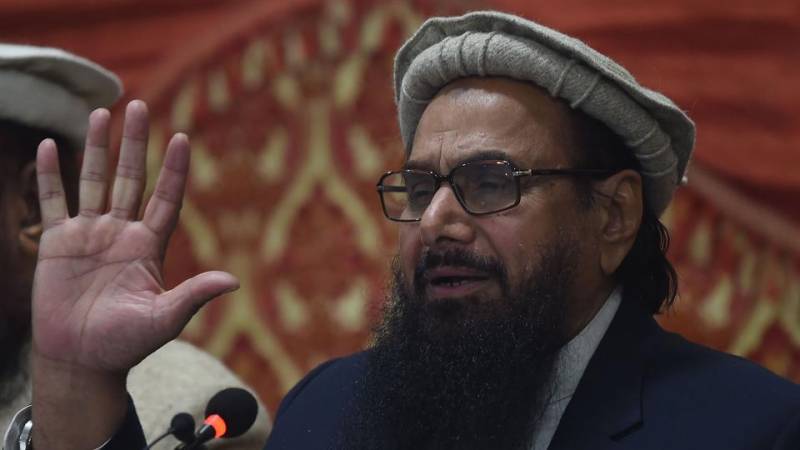
The six-day Financial Action Task Force (FATF) meeting begins today (Sunday) in Paris, with Pakistan destined to find out its fate at the end of this week. Caretaker Finance Minister Dr Shamshad Akhtar will be presenting Islamabad’s case amidst the blazing of question-marks over Pakistan’s counter-terror policymaking.
While Pakistan has been vying to ward off the chances of it returning to the global terror watchlist, ending up on the grey-list – where the country was from 2012 to 2015 – would actually be a win for Islamabad given how the previous meeting in February ended.
Unprecedented scrutiny
February’s FATF meeting was an absolute shambles for Islamabad, with the United States calling for an unprecedented second meeting to review Pakistan, after the then Foreign Minister Khawaja Asif pulled the trigger too soon in a self-congratulatory tweet.
Not only did the diplomatic farce bring about embarrassment for Pakistan, with the US accusing Asif of leaking meeting details, the claims themselves were factually incorrect, considering that Pakistan hadn’t been given a ‘reprieve’, but had been given time to explain its delicate position.
That time was taken away with Washington calling a second vote on Pakistan, with Turkey being the only country voting in favour and even China and Saudi Arabia opting out.
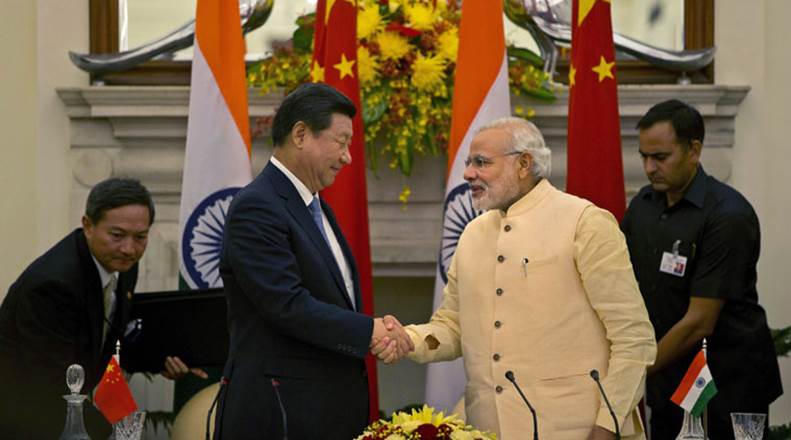
That meant that Islamabad was asked to come up with a clear road map defining its counter-terror position and strategies, failing which Pakistan faces the possibility of being only the third country after North Korea and Iran to actually be blacklisted.
Terror financing and isolation
Dr Shamshad Akhtar’s primary task in Paris this week would be to underline Pakistan’s efforts in curtailing the financing of terror outfits. Of the “40 plus 9” FATF recommendations, Pakistan falls significantly short on many. Islamabad hasn’t followed FATF instructions to curtail money laundering and terror financing.
The potential blacklisting would be a catastrophe for the economy, with a global banking isolation becoming a veritable reality. Last year, Habib Bank Limited was expelled from the US with a $225 million fine, after being accused of opening “the door to the financing of terror” owing flaws in its systems.
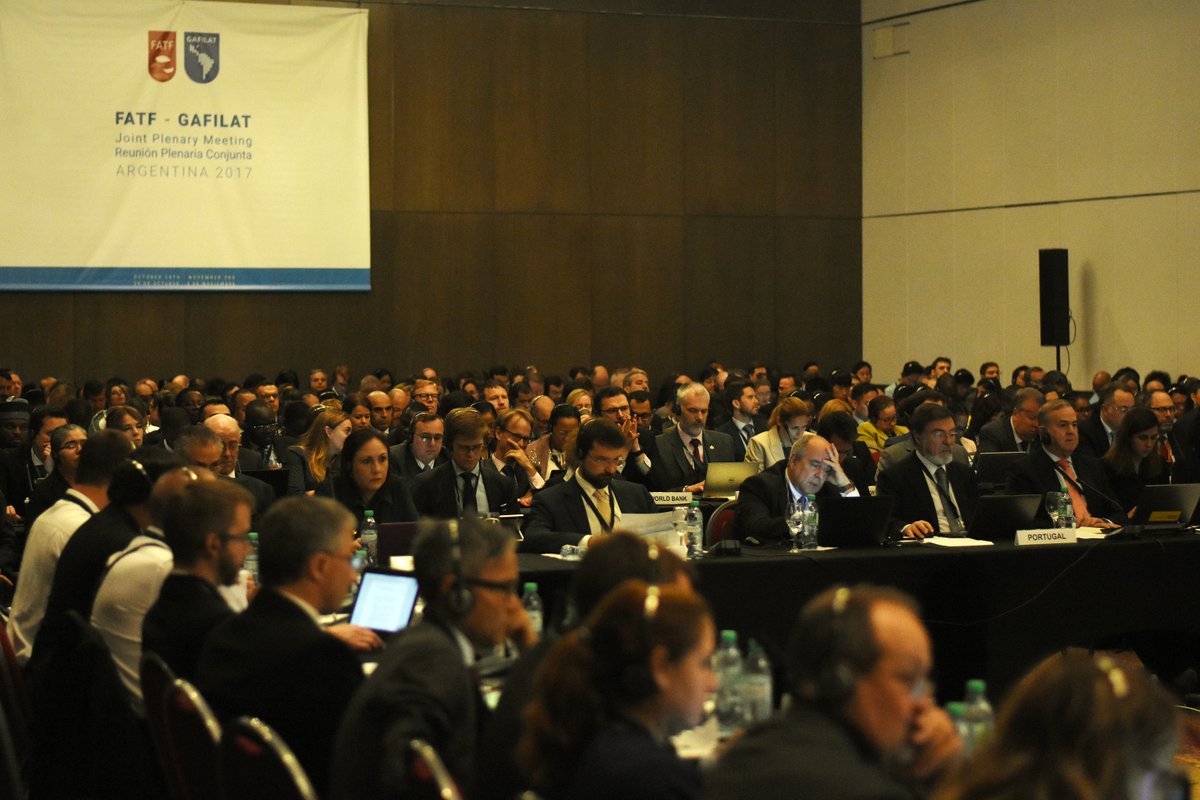
Those UN listed terror groups that still have functional bank accounts in their names or that of their affiliates need to be targeted and eliminated. Instead they are being allowed to function as charities, putting Pakistan’s own economic future under jeopardy.
Mainstreaming menace
Needless to say that Dr Shamshad Akhtar and the Pakistani delegation will have their work cut out in Paris this week, considering what is taking place parallel to the FATF meeting. Pakistan’s mainstreaming of jihadist elements has been dissected the world over, and was discussed in detail during the February meeting as well.
But considering that individuals affiliated with the Milli Muslim League (MML) – of the Laskhar-e-Taiba (LeT) network – Ahl-e-Sunnat Wal Jamaat (ASWJ) – of the Sipah-e-Sahaba network – are contesting elections, while the Tehrik-e-Labbaik Ya Rasool Allah (TLY) is a registered party, the Pakistani delegation would have a lot of explanation to do.
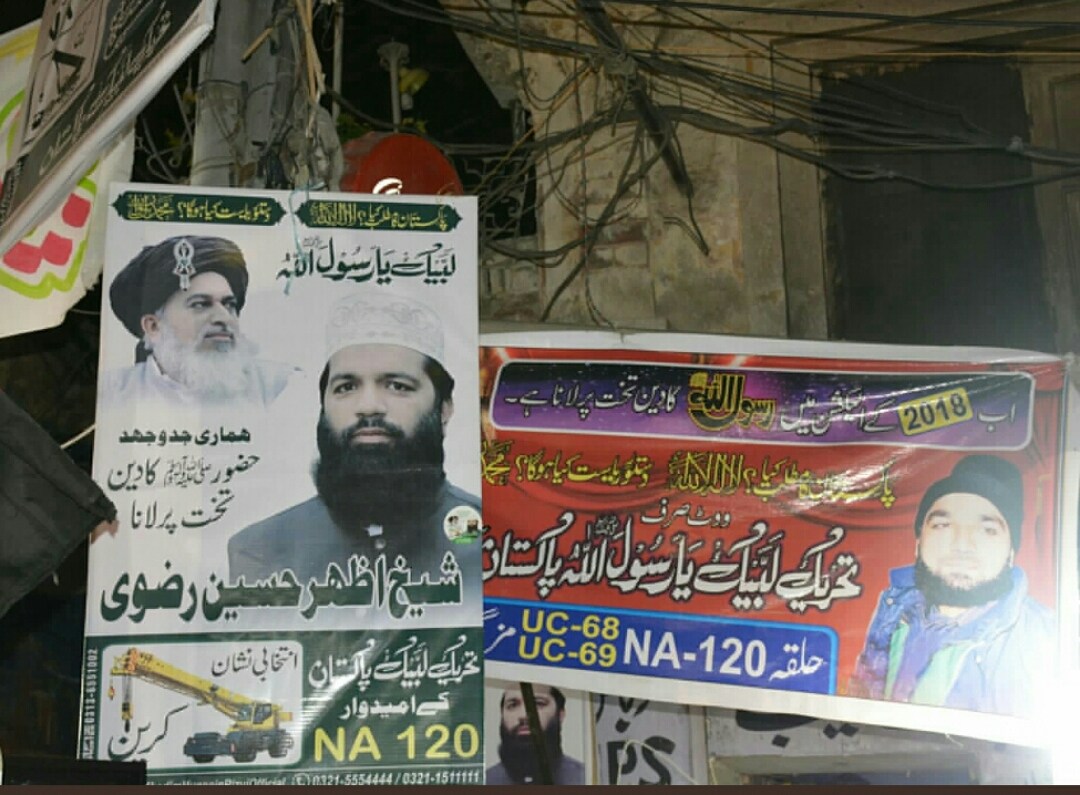
It is common knowledge that these groups rechristen themselves, and that is how they continue to run bank accounts and engage in hefty transactions. So with these groups actually contesting elections under new banners – independent or otherwise – the only argument that Pakistan could present in Paris is that this is a well thought out mainstreaming process.
But even the slightest of research would prove otherwise since the Parliament never approved a set of guidelines for the mainstreaming, which is largely being undertaken by the military establishment that has a history simultaneously using these militant groups as strategic assets.
Short-term shrouds
Just before the FATF meeting in February, President Mamnoon Hussain had issued the Anti-Terrorism Ordinance 2018 to impose a nationwide ban on UN listed terrorist groups.
Similarly, the Securities and Exchange Commission of Pakistan (SECP) issued Anti Money Laundering and Countering Financing of Terrorism Regulations, 2018, “compliant with FATF recommendations” on June 20 – four days before the meeting. That came after National Security Committee’s (NSC) token reaffirming of “its commitment to cooperate with FATF” on June 8.
What Pakistan intends to showcase, through steps that can’t even qualify as short-term fixes, is hard to decipher. Considering that it has become a pattern for Pakistan to pass something on the brink of an FATF meeting, actually delineates the non-seriousness, nay criminal negligence, such last ditch efforts are blatantly see-through.
What they also underscore is the simple reality that those being asked to defend such duplicitous security and counter-terror policies in high-profile global meetings aren’t the ones formulating them.
Grey of hope
Considering these realities, and the fact that Pakistan quite clearly isn’t prepared to fight a case against it being blacklisted – for being a repeat offender on a loop, if nothing else – Islamabad would actually breathe a sigh of relief at only being grey-listed, something it has experienced in the past.
The US, under the Donald Trump regime, has clearly identified Pakistan as the problem in South Asia, and hence Washington would continue to use platforms like FATF to arm-twist Pakistan.
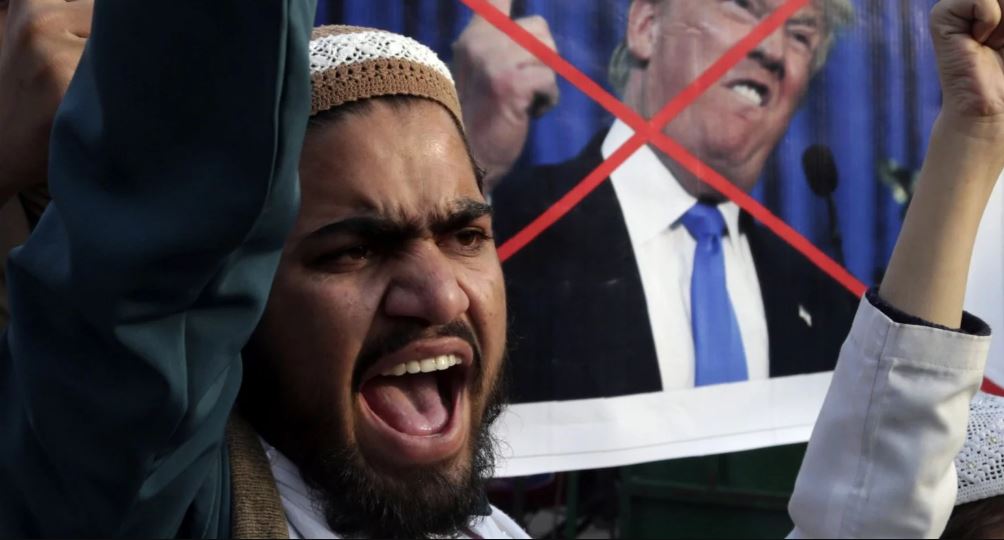
But as has been said multiple times in the past, what the US – and even China for that matter – is pushing Pakistan for is nothing but the country’s own improved security situation. That, unfortunately, isn’t possible till the policymaking doesn’t change hands.
While Pakistan has been vying to ward off the chances of it returning to the global terror watchlist, ending up on the grey-list – where the country was from 2012 to 2015 – would actually be a win for Islamabad given how the previous meeting in February ended.
Unprecedented scrutiny
February’s FATF meeting was an absolute shambles for Islamabad, with the United States calling for an unprecedented second meeting to review Pakistan, after the then Foreign Minister Khawaja Asif pulled the trigger too soon in a self-congratulatory tweet.
Our efforts paid,FATF Paris 20Feb meeting conclusion on US led motion to put Pakistan on watch list
-No consensus for nominating Pakistan
-proposing 3months pause &asking APG for another report to b considered in June الحمداللہ
Grateful to friends who helped
— Khawaja M. Asif (@KhawajaMAsif) February 20, 2018
Not only did the diplomatic farce bring about embarrassment for Pakistan, with the US accusing Asif of leaking meeting details, the claims themselves were factually incorrect, considering that Pakistan hadn’t been given a ‘reprieve’, but had been given time to explain its delicate position.
That time was taken away with Washington calling a second vote on Pakistan, with Turkey being the only country voting in favour and even China and Saudi Arabia opting out.

That meant that Islamabad was asked to come up with a clear road map defining its counter-terror position and strategies, failing which Pakistan faces the possibility of being only the third country after North Korea and Iran to actually be blacklisted.
Terror financing and isolation
Dr Shamshad Akhtar’s primary task in Paris this week would be to underline Pakistan’s efforts in curtailing the financing of terror outfits. Of the “40 plus 9” FATF recommendations, Pakistan falls significantly short on many. Islamabad hasn’t followed FATF instructions to curtail money laundering and terror financing.
The potential blacklisting would be a catastrophe for the economy, with a global banking isolation becoming a veritable reality. Last year, Habib Bank Limited was expelled from the US with a $225 million fine, after being accused of opening “the door to the financing of terror” owing flaws in its systems.

Those UN listed terror groups that still have functional bank accounts in their names or that of their affiliates need to be targeted and eliminated. Instead they are being allowed to function as charities, putting Pakistan’s own economic future under jeopardy.
Mainstreaming menace
Needless to say that Dr Shamshad Akhtar and the Pakistani delegation will have their work cut out in Paris this week, considering what is taking place parallel to the FATF meeting. Pakistan’s mainstreaming of jihadist elements has been dissected the world over, and was discussed in detail during the February meeting as well.
But considering that individuals affiliated with the Milli Muslim League (MML) – of the Laskhar-e-Taiba (LeT) network – Ahl-e-Sunnat Wal Jamaat (ASWJ) – of the Sipah-e-Sahaba network – are contesting elections, while the Tehrik-e-Labbaik Ya Rasool Allah (TLY) is a registered party, the Pakistani delegation would have a lot of explanation to do.

Even the slightest of research would prove otherwise since the Parliament never approved a set of guidelines for the mainstreaming, which is largely being undertaken by the military establishment that has a history simultaneously using these militant groups as strategic assets
It is common knowledge that these groups rechristen themselves, and that is how they continue to run bank accounts and engage in hefty transactions. So with these groups actually contesting elections under new banners – independent or otherwise – the only argument that Pakistan could present in Paris is that this is a well thought out mainstreaming process.
But even the slightest of research would prove otherwise since the Parliament never approved a set of guidelines for the mainstreaming, which is largely being undertaken by the military establishment that has a history simultaneously using these militant groups as strategic assets.
Short-term shrouds
Just before the FATF meeting in February, President Mamnoon Hussain had issued the Anti-Terrorism Ordinance 2018 to impose a nationwide ban on UN listed terrorist groups.
Similarly, the Securities and Exchange Commission of Pakistan (SECP) issued Anti Money Laundering and Countering Financing of Terrorism Regulations, 2018, “compliant with FATF recommendations” on June 20 – four days before the meeting. That came after National Security Committee’s (NSC) token reaffirming of “its commitment to cooperate with FATF” on June 8.
What Pakistan intends to showcase, through steps that can’t even qualify as short-term fixes, is hard to decipher. Considering that it has become a pattern for Pakistan to pass something on the brink of an FATF meeting, actually delineates the non-seriousness, nay criminal negligence, such last ditch efforts are blatantly see-through.
What they also underscore is the simple reality that those being asked to defend such duplicitous security and counter-terror policies in high-profile global meetings aren’t the ones formulating them.
Grey of hope
Considering these realities, and the fact that Pakistan quite clearly isn’t prepared to fight a case against it being blacklisted – for being a repeat offender on a loop, if nothing else – Islamabad would actually breathe a sigh of relief at only being grey-listed, something it has experienced in the past.
The US, under the Donald Trump regime, has clearly identified Pakistan as the problem in South Asia, and hence Washington would continue to use platforms like FATF to arm-twist Pakistan.

But as has been said multiple times in the past, what the US – and even China for that matter – is pushing Pakistan for is nothing but the country’s own improved security situation. That, unfortunately, isn’t possible till the policymaking doesn’t change hands.
